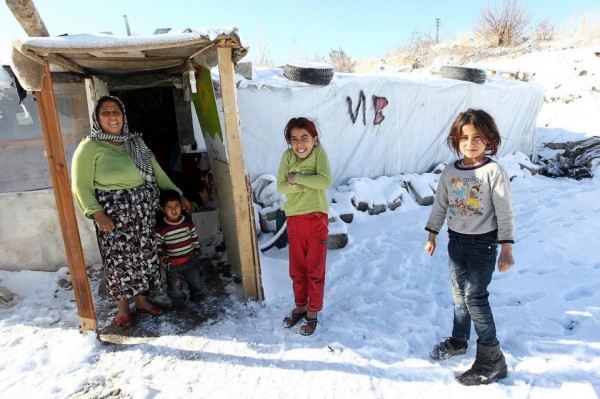
Lebanon is home to about 1.5 million refugees from neighbouring Syria, ravaged by nearly six years of war, and hundreds of thousands of Palestinian refugees.
Syrians had to pay a yearly fee of USD 200 to live in Lebanon legally, even if they were registered as refugees and living in tents.
But last week, Lebanon’s General Security announced that “Syrian refugees registered with the United Nations High Commissioner for Refugees before 2015 can now obtain a six-month residency permit for free.”
The waiver was welcomed by Human Rights Watch.
“A decision to lift a hefty fee that has prevented many Syrians from maintaining legal status in Lebanon is a positive step,” the watchdog said yesterday.
“If it’s carried out, the decision to waive residency fees for some refugees will have a real and positive impact for many Syrian families living in Lebanon,” HRW’s deputy Middle East director, Lama Fakih, said.
“Yet excluding large parts of the refugee population only serves to further marginalise already vulnerable people,” she warned.
HRW said General Security had confirmed to it that the new policy does not apply to Palestinian refugees from Syria, who are some of the most vulnerable.
The waiver also excludes registered refugees who renewed their residency through a Lebanese sponsor, and those who never registered with UNHCR.
At the request of the government in Beirut, UNHCR stopped registering new Syrian refugees in Lebanon in May 2015.
An estimated 500,000 Syrians in Lebanon are not registered with the UN agency, according to government estimates cited by Human Rights Watch.
BUSINESS STANDARD

Leave a Reply
You must be logged in to post a comment.